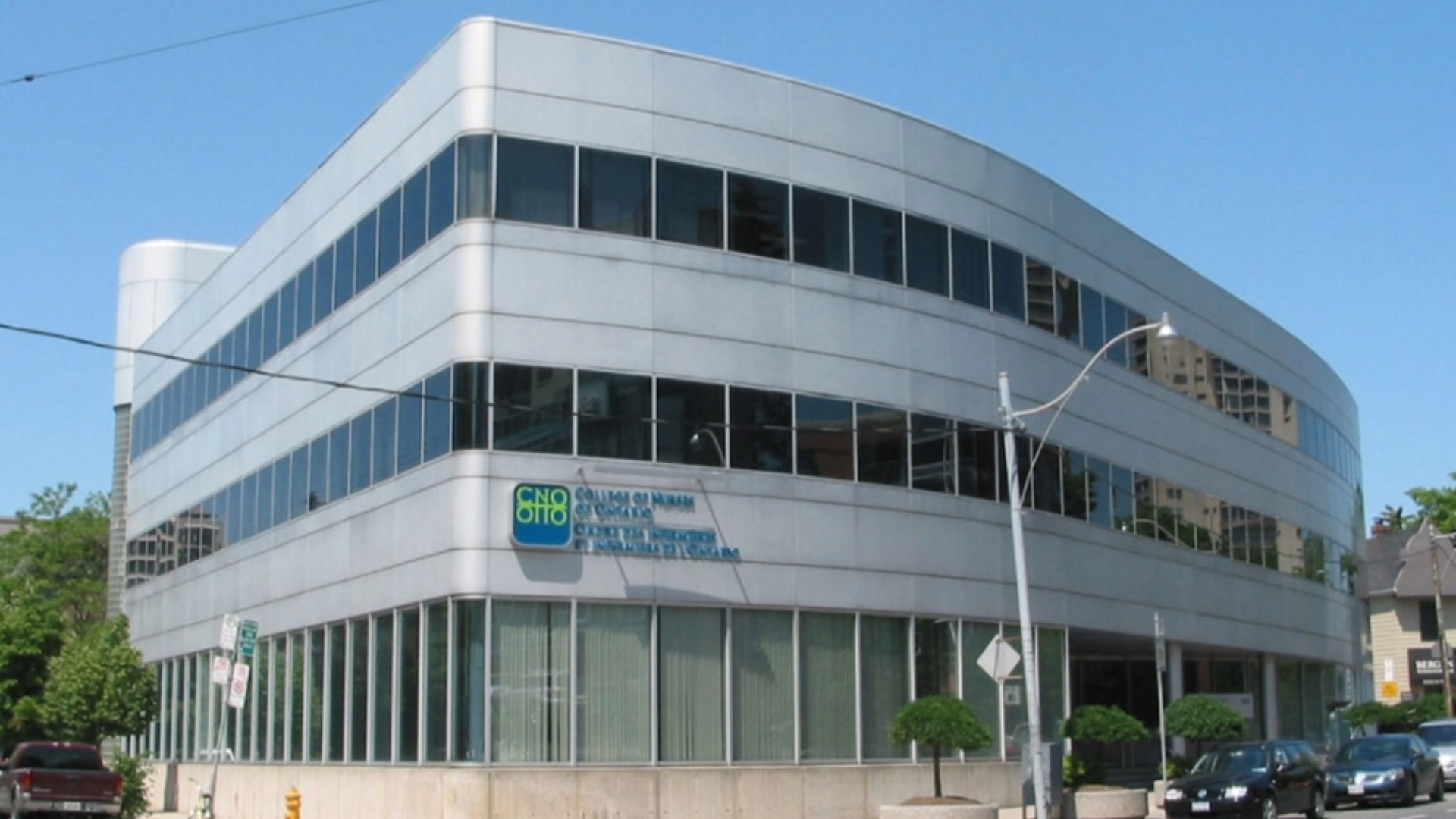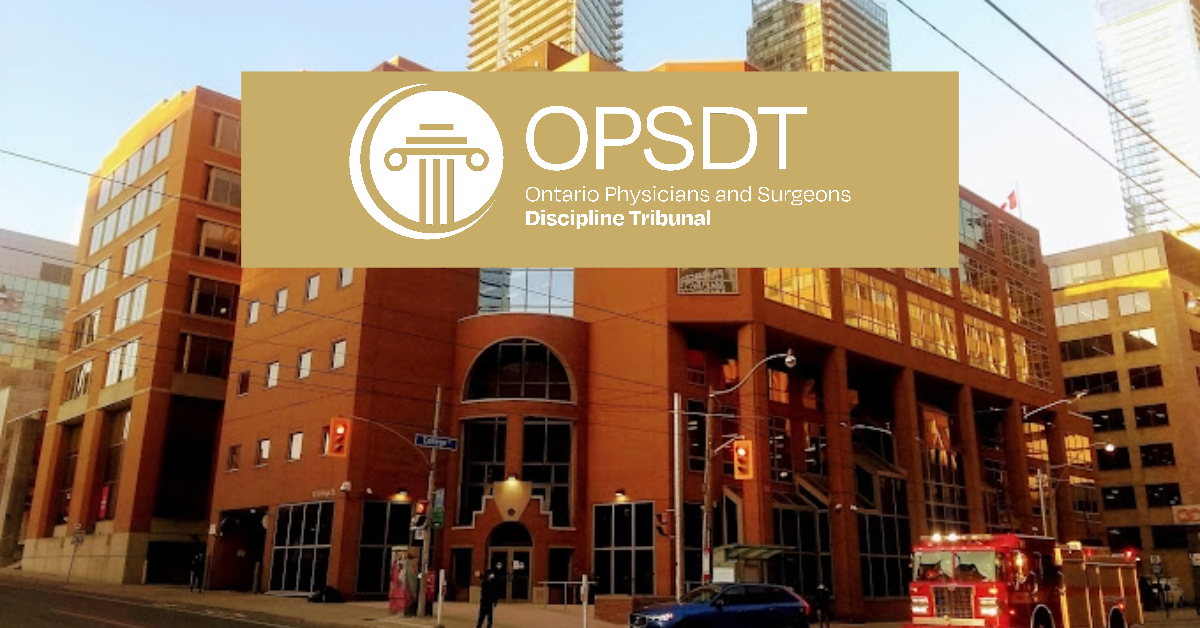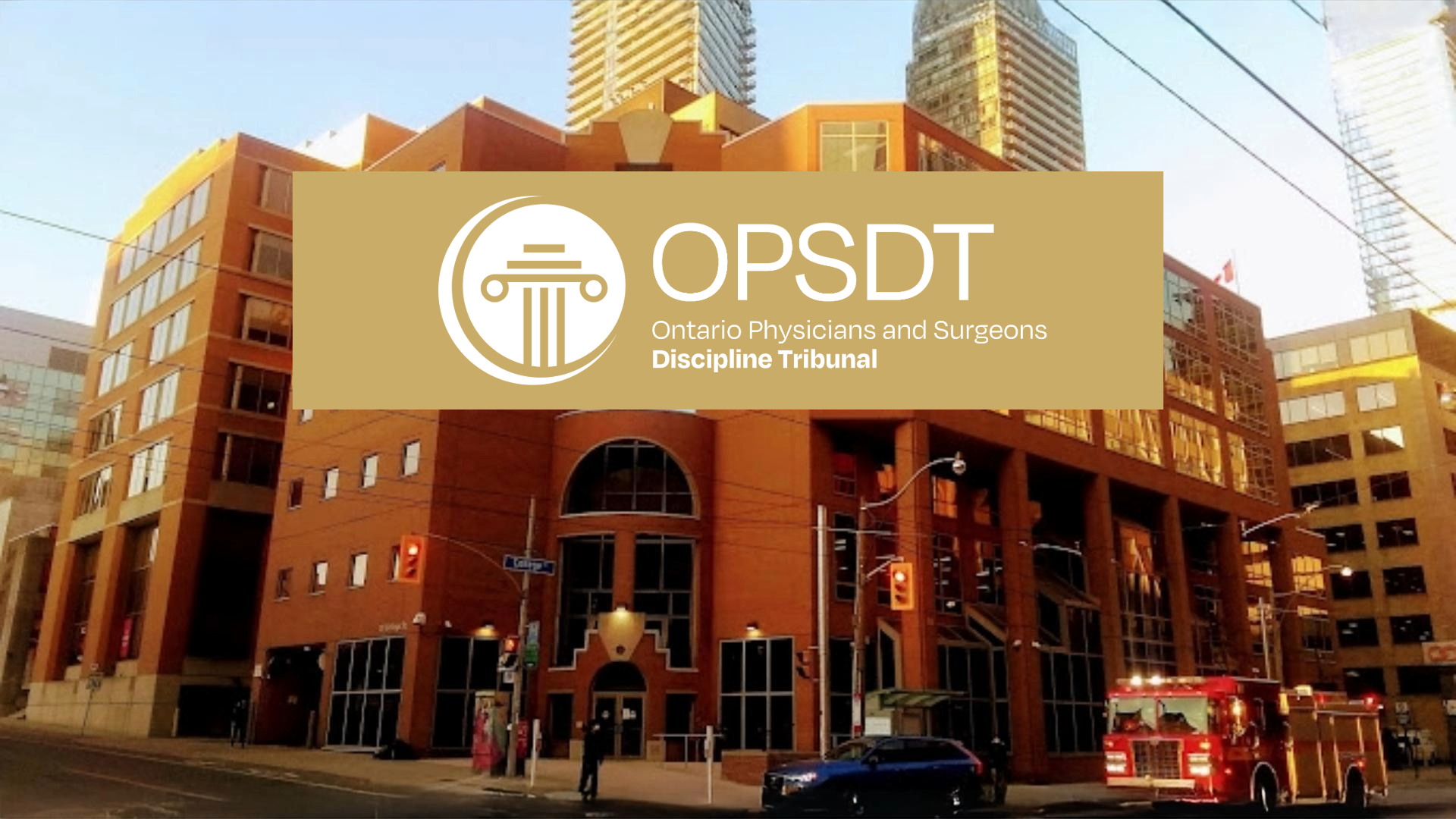
Nurse Alters Morphine Record, Patient Dies: CNO Orders Permanent Resignation
A Profound Breach of Trust in End-of-Life Care In CNO v. Lindsey Coyle, the Discipline Committee of the College of Nurses of Ontario addressed one

On January 23, 2005, James Lorencz, aged 49, suffered a massive heart attack, leading to his death several weeks later. His family attributed his death to the negligence of some of the physicians involved in his care prior to his death.
After a trial, a Court of King’s Bench judge found that Dr. Sneha Prabha Talukdar had breached the duty of care she owed Mr. Lorencz because she had not referred him to a cardiologist after seeing him twice in the months prior to his heart attack. However, the judge also found that Dr. Talukdar’s negligence had not caused Mr. Lorencz’s death because he was “unable to conclude on a balance of probabilities that Mr. Lorencz would have been able to see the specialist, have the necessary investigations completed, and arrive at the necessary medical opinions [to prevent his death] prior to his cardiac event on January 23, 2005” (Trial Decision at para 114).
The patient’s family appealed the trial judge’s finding of no causation. The Court of Appeal found no reason to interfere with the trial’s decision and therefore the appeal was dismissed.
The trial proceeded over four days in September of 2022. The judge heard evidence on behalf of the family from Ms. Lorencz and two experts. Dr. Hein De Klerk provided expert evidence pertaining to the standard of care expected of a family physician. Dr. Robert Iwanochko was qualified in the field of cardiology with expertise in the diagnosis and treatment of cardiac disease, and was tendered to offer opinion evidence on the questions of whether Mr. Lorencz’s death could have been prevented by appropriate medical management.
For the defendants, Dr. Talukdar and Dr. Babchuk each testified on their own behalf. They also called Dr. Roy Chernoff and Dr. Nawal Sharma. Dr. Chernoff was qualified to give opinion evidence in the field of family medicine. Dr. Sharma was tendered to provide testimony in the field of internal medicine with expertise in the diagnosis and treatment of cardiac disease. The scope of Dr. Sharma’s opinion evidence included whether appropriate medical management was provided prior to Mr. Lorencz’s death and whether his death could have been prevented by alternate medical management.
The judge found that on December 22, 2004, “Dr. Talukdar heard [from Mr. Lorencz] there was ongoing pain”, but she “did nothing with that information and did not ask any further questions of the patient”. He added that Dr. Talukdar “perhaps made an assumption of what the patient was referring to” but that the “expert evidence called makes it clear assumptions do not satisfy the standard of care and specific questioning is in order to deal with that which is relayed by the patient” (at para 94). The judge observed that, although Dr. Talukdar had been “told of the existence of pain, there is nothing on the medical chart to indicate any form of inquiry or discussion to flesh out what this reference meant” (at para 95). He also reviewed the details of the information contained on the Burns index forms and the absence of any inquiries of Mr. Lorencz by Dr. Talukdar to identify the nature of the pain that he had been experiencing. The judge concluded from all this that Dr. Talukdar had failed to meet the applicable standard of care.
With respect to causation, the trial judge concluded that, according to the evidence, had “Dr. Talukdar engaged in making a deferential [sic] diagnosis and determined to have Mr. Lorencz obtain a further medical consultation with a specialist, the options which might have been available in this regard would have been to make a referral on an emergent basis or to make a referral to a cardiologist for further consultation” (at para 106). He noted that the “evidence of each of Dr. Iwanochko and Dr. Sharma was that an emergent referral would only have been made if the patient was exhibiting serious and immediate symptoms during the attendance on the family physician”. He then reviewed what those symptoms would include and concluded that there “is no evidence to suggest that any of these factors were present when Mr. Lorencz attended before Dr. Talukdar” (at para 107).
Based on all of this, the judge found that he was not satisfied, on a balance of probabilities, that Mr. Lorencz would have been seen by a cardiologist and diagnosed and treated prior to his heart attack on January 23, 2005
The family’s many arguments were addressed by considering the following two questions:
(a) Did the judge apply the correct test for determining causation?
(b) Is the judge’s finding that Dr. Talukdar’s negligence did not cause Mr. Lorencz’s death a product of a palpable and overriding error?
After reviewing the law in detail, the Court of Appeal concluded that the trial judge did not err in law in his application of the “but for” test for establishing causation in this case.
The Court of Appeal was furthermore not persuaded that a palpable and overriding error occurred with respect to the finding that had the standard of care been met, that a non-emergent referral to a cardiologist would have not likely have taken place before the fatal cardiac event.
As the trial judge pointed out, Dr. Sharma’s evidence “was that a referral appointment to a cardiologist could take months, in the absence of a need for an urgent attendance” (at para 109, emphasis added). The judge’s later statement that the “extent of the evidence at trial was that such a referral could take weeks or months in Saskatchewan” (at para 113) corresponds with the testimony of Dr. Sharma as to how long a referral would take, depending on whether that referral was made on an urgent or non-urgent basis.
The Court of Appeal found that the trial judge’s determination was that “to conclude Mr. Lorencz would have been able to obtain a referral appointment to a cardiac specialist would be little more than speculation based on the evidence tendered at the trial of this matter”. He reached this conclusion, even though, as he said, he was “applying the robust and pragmatic approach encouraged by the Supreme Court of Canada” (at para 115). In the context of the judgment as a whole, the Court of Appeal decided that this statement must be taken to encompass rejection of the idea that the circumstances existed for an urgent referral.
In short, when the Trial Decision is taken as a whole, the appellate court was satisfied that the judge considered the possibility of both an urgent and non-urgent referral to a cardiologist before he reached his conclusion that the family had not established causation.
The Court of Appeal found no basis to interfere with the judge’s finding that, on a balance of probabilities, even if Dr. Talukdar had not been negligent Mr. Lorencz’s death would not have been prevented.
As a result, the family’s appeal against the dismissal of their claim against Dr. Talukdar was dismissed, with costs in favour of Dr. Talukdar.
Decision Date: November 15, 2024
Jurisdiction: Court of Appeal for Saskatchewan

A Profound Breach of Trust in End-of-Life Care In CNO v. Lindsey Coyle, the Discipline Committee of the College of Nurses of Ontario addressed one

What College of Physicians and Surgeons of Ontario v. Thirlwell, 2026 ONPSDT 5 Means for Patients and Public Trust In College of Physicians and Surgeons

Estate of Henders v. Lakeridge Health Oshawa, 2026 ONSC 701 In a significant decision for medical malpractice and long-term care litigation in Ontario, the Superior

What CPSO v. Faruqi Means for Patients and Physicians On January 21, 2026, the Ontario Physicians and Surgeons Discipline Tribunal released an important decision addressing